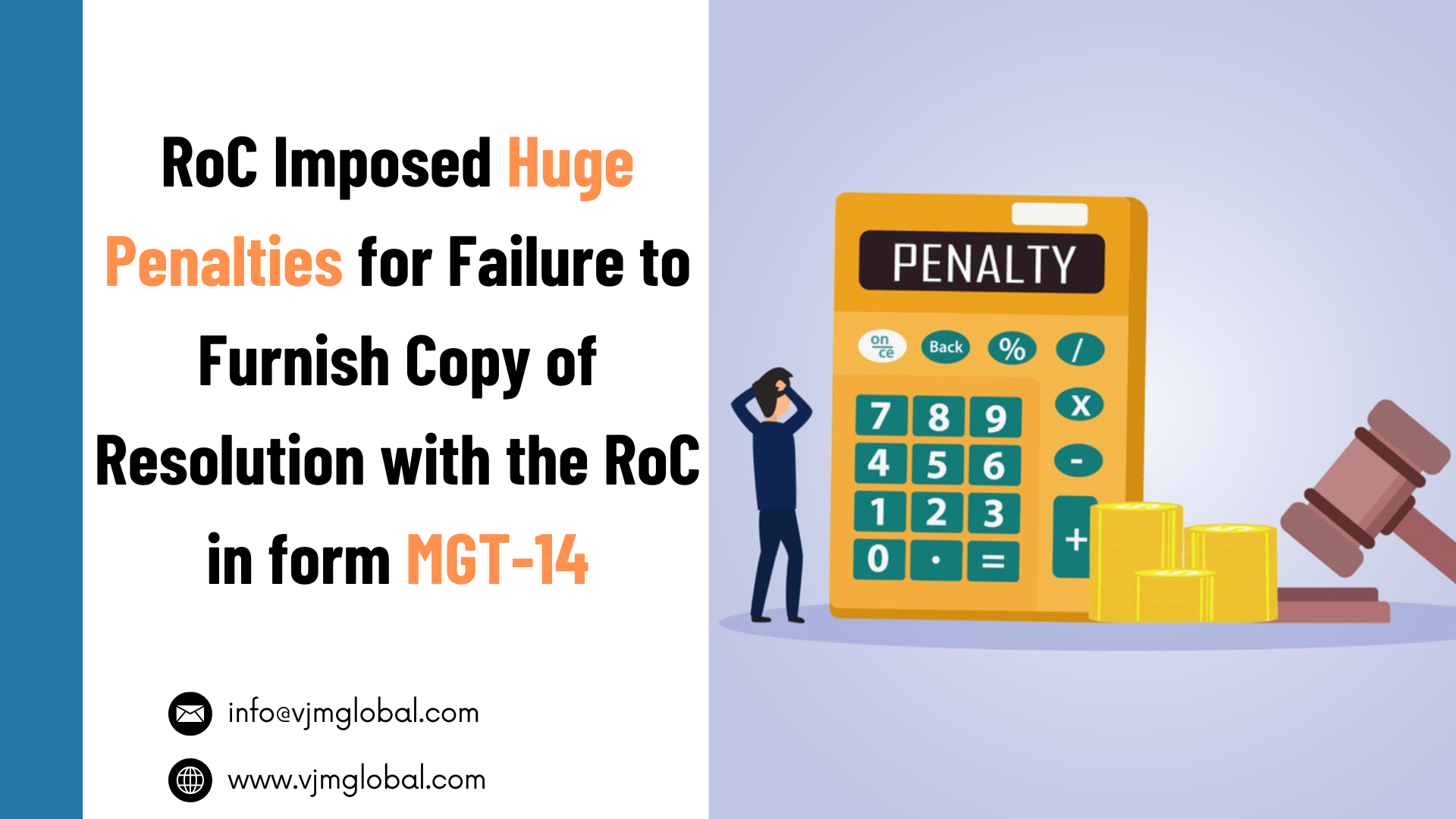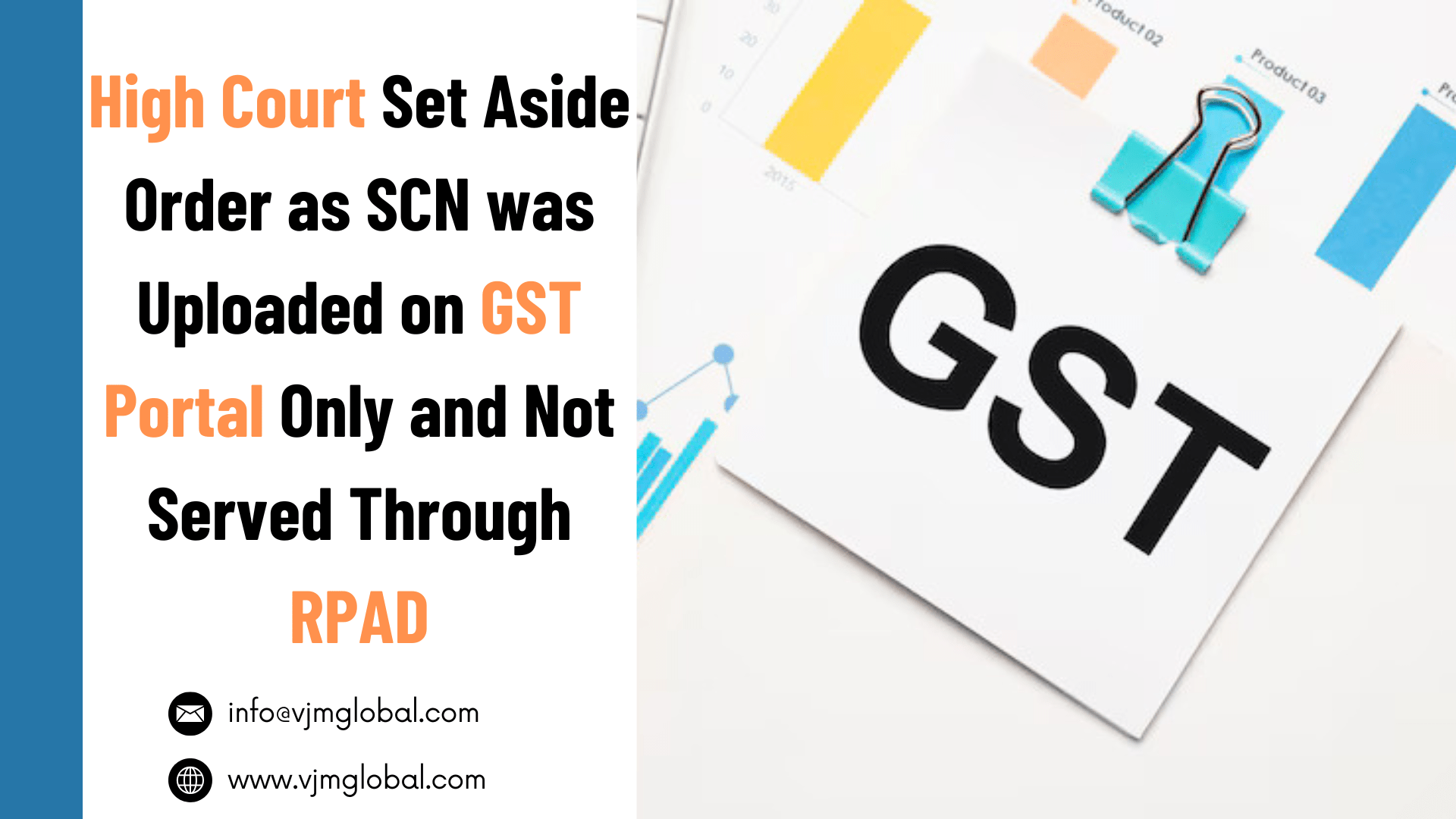In this era of digitalization, when most transactions are made through a digital channel such as online transfer, online receipts, and payments, etc., it is not possible for a person to survive without a Bank Account. So, every person, whether resident or Non-resident in India, is required to open a bank account in India to operate in India. Account opening norms are quite clear for person of Indian resident. However, types of bank accounts and norms of opening a bank account are different for Non-resident.
In this article, you will get a detailed analysis of the bank accounts that can be opened by Non-resident Indians (NRI) or a Person of Indian Origin (PIO) in India, its features, taxation structure, and suitability in accordance with a specific purpose.
1. Who is an NRI
In simple words, as per RBI guidelines, a Non-resident Indian (NRI), is a person resident outside India who is a citizen of India.
2. Who is a Person of Indian Origin
A ‘Person of Indian Origin (PIO)’ means a person who is resident outside India and who is a citizen of any country other than Bangladesh or Pakistan and satisfies the following conditions:
- He is a Citizen of India by virtue of the Constitution of India or the Citizenship Act, 1955; or
- He belongs to a territory that became part of India after the 15th August, 1947; or
- He is a child or a grandchild or a great grandchild of a India citizen or of a person referred to in clause (a) or (b); or
- He is spouse of foreign origin of a India citizen or spouse of foreign origin of a person referred to in clause (a) or (b) or (c)
A PIO will include an ‘Overseas Citizen of India’ cardholder. Such an OCI Cardholder should also be a person resident outside India.
3. Why should an NRI/PIO open a Bank account in India
There are no specified cases prescribed when an NRI/PIO should open a bank account in India and A NRI/PIO may open a Bank Account as per their own discretion. However, the following can be the cases where an NRI/PIO must have a Bank account in India:
- NRIs/PIOs have a source of income in India. In this case, a bank account is required to collect such income and hold it for future, if not repatriated outside India.
- NRIs who have dependents in India or are planning to return after a point of time. NRI/PIO shall need a bank account in India to transfer funds.
- NRI/PIO who is intending to participate in stock market trading in India, in order to enable such transactions.
4. Different types of Accounts that an NRI/PIO can hold
As per the provisions of the Foreign Exchange Management Act (FEMA), 1999, upon becoming a non-resident Indian or PIO, an individual can open three types of accounts in India. They are:
4.1 Non-Resident External (NRE)Account
- NRE accounts are opened and maintained by NRIs to transfer foreign earnings to India. Therefore, The main objective behind an NRE account is to repatriate foreign earnings to India.
For example, A is working in Paris, France and his income is generated in France. Therefore, if he wants to remit such income or any part thereof to India then he needs an NRE Account in India.
- Only NRIs and PIOs can open NRE account i.e. Foreign companies or foreign nationals will not be permitted to hold NRE accounts in India. Prior approval of RBI is required by individuals/entities of Pakistan and Bangladesh to open an NRE Account.
- Permissible Credit to NRE Account:
- It is important to note that only foreign currency can be deposited in this account.
- However, NRE account is maintained in INR terms.
- Accordingly, all foreign currency received in this account is first converted into INR at the bank’s buying rate.
- Therefore, NRE accounts are prone to exchange rate fluctuations.
- Accordingly following inward remittances are permitted in NRE Account:
- Inward Remittance from outside India
- Interest accrued on funds held in this account
- Transfer from another NRE or FCNR Account.
- Interest on investment
- Sales proceeds of Investment, if such investments were made from this account or through inward remittance.
- Permissible Debit to NRE Account
- Following debits are permissible from NRE Account:
- Local disbursements;
- Remittance outside India;
- Transfer to another NRE/FNCR Account;
- investments in shares/ securities/commercial paper of an Indian company
- Following debits are permissible from NRE Account:
- No income tax is payable on any income received in this account including interest income earned from the deposits in NRE Account because none of the funds deposited in this account are from incomes accrued in India.
- Money from an NRE account is freely and fully repatriable.
- NRE Account can be opened in any form like savings, current, recurring, fixed deposits account.
- In case an NRI becomes a resident, it is mandatory to change the status of the NRE account to a resident account or the funds from the NRE account should be transferred to foreign currency accounts.
4.2 Non-Resident Ordinary (NRO) Account
- An NRO account is opened by NRIs/PIOs to manage their deposits or incomes earned in India such as rent, dividend income etc.
- NRO Accounts are maintained in Indian Rupee. Therefore, income earned in India is deposited to NRO Account without any currency conversion requirement
For example, X is an NRI who is residing in Sydney, Australia but has an apartment in Bangalore that she has leased to Y. In order to receive rent earnings from this lease, X needs to open an NRO account where Y shall deposit the stipulated amount periodically.
- The main objective is to park the income that is earned in India after becoming a non-resident.
- Any person resident outside India including NRIs and PIOs can open an NRO Account. However, prior approval of RBI is required by Individuals of Pakistan and Bangladesh to open such accounts.
- Funds in this account can be deposited in foreign currency or in Rupee terms, However, the balance of the account would be reflected in (converted to) INR.
- Permissible Credits to NRO Account:
- Incomes earned in India
- Inward remittance from outside India.
- Transfer from another NRO Account
- Rupee Gift/Loan by resident to NRI/POI relative within the limit prescribed under Liberalised Remittance scheme
- Permissible Debit to NRO Account
- Following debits are permissible in NRO Account
- Local payments
- Transfer to another NRO Account
- Remittance of current income abroad
- Balances in the NRO account cannot be repatriated abroad except by NRIs and PIOs up to USD 1 million, subject to conditions specified in Foreign Exchange Management (Remittance of Assets) Regulations, 2016.
- Funds can be transferred to NRE account within this USD 1 Million facility.
- Following debits are permissible in NRO Account
- When a Resident becomes an NRI his resident accounts itself can be converted into an NRO Account.
- It shall be opened in any form like savings, current, recurring, fixed deposits account.
- Funds from the NRO Accounts can’t be repatriated except for all current income. Balances in an NRO account of NRIs/ PIOs are remittable up to USD 1 million per financial year (April-March) along with their other eligible assets.
- Prior to 2012, the transfer of funds from NRO to NRE account was not permitted by RBI. However, post 2012, RBI has permitted transfer of funds from NRO to NRE account upto a limit of USD 1 million in a financial year. (For transfer of funds from NRO to NRE account, NRIs need to submit Form 15CA and form 15CB to their bank.)
- The interest earned in NRO account is subject to tax as well as TDS provisions. Hence in order to deposit savings earned abroad, NRE Account would be considered as a more favorable choice.
4.3 Foreign Currency (Non-resident) Account (Banks) Scheme- FCNR (B) Account
- An NRI/PIOs can opt for an FCNR account when they want to hold a fixed Deposit for their income earned abroad. FCNR Account allows you to save money earned overseas in foreign currency.
- Any person resident outside India are eligible to open and maintain these accounts with an authorised dealer. However, Individual/entities of Pakistan and Bangladesh shall requires prior approval of the Reserve Bank of India.
- These accounts can be maintained in any permitted foreign currency, i.e., currency freely convertible to Indian rupees.
- These accounts may be opened only in the form of term deposit with maturity of such period as may be specified by the Reserve Bank from time to time.
- The period of term deposits can be from one year to five years. One may close an FCNR (B) account prematurely. However, in order to earn any interest on the amount, the deposit must stay with the bank for at least one year.
- In case of change of the account holder’s status from Non-Resident to Resident, the FCNR (B) account shall continue till maturity. Post that, such an account shall be converted into a resident deposit account or RFC account at the option of the depositor.
- One of the advantages of holding a FCNR (B) account is that these accounts can be maintained in any foreign currency. This reduces the risk of currency fluctuation as in the case of NRO and NRE accounts.
- Permissible Credit and Debit to FCNR Account are similar to that of NRE Account.
5. Difference between the three NRI bank accounts
In the table below you can find the key distinctions between the three NRI bank accounts:
| Point of difference | NRE Account | NRO Account | FCNR (B) Account |
| Purpose | To transfer foreign earnings in India. | To deposit money earned in India. | To deposit money earned overseas in form of Fixed Deposit |
| Currency denomination of Account | INR (Indian Rupee) | INR (Indian Rupee) | Freely Convertible Foreign Exchange, i.e., USD, CAD, AUD, HKD, SGD, EUR, GBP, CHF, JPY |
| Types of Accounts | Can be opened in form of savings, current, or fixed deposit account | Can be opened in form of savings, current, or fixed deposit account | Only fixed deposit accounts can be opened with a minimum maturity period of 1 year |
| Taxability | Deposits are tax free | Both (interest+principal) are taxable | Deposits are tax free |
| Joint Account Facility | It can be opened with another NRI/PIOs only | It can be opened with another NRI/PIO or an Indian Resident. | It can be opened with another NRI/PIO |
| Repatriation of Balance | Money is freely repatriable i.e. both the Principal amount and interest earned are freely and completely transferable. | Funds from the NRO Accounts can be repatriated post payment of applicable taxes with a limit of USD 1 million in a financial year | Money is freely repatriable i.e. both the Principal amount and interest earned are freely and completely transferable. |
| Effect of exchange rate | Affected by prevailing exchange rates | Not affected by prevailing exchange rates | Affected by prevailing exchange rates in case there is currency conversion involved and vice versa |
| Period of fixed deposits | From 1-3 years, However, banks are allowed to accept NRE deposits above 3 years from their Asset-Liability point of view | As applicable to resident accounts | The maturity tenure allowed on FCNR fixed deposits is 1 – 5 years. |
| Loans in India | AD can make unlimited loans to account holders and third parties in India, subject to the customary margin rules. These loans are not transferable outside of India, and they can only be utilised in India for the purposes listed in the regulations. There shall be no direct or indirect foreign exchange consideration for the non-resident depositor consenting to pledge his deposits to enable the resident individual/firm/company to access such facilities in the case of loans sanctioned to a third party. | Loans against the deposits can be granted in India to the account holder or third party subject to usual norms and margin requirements. The loan amount cannot be used for relending, carrying on agricultural/ plantation activities or investment in real estate. The term “loan” shall include all types of fund based/ non-fund based facilities. | AD can make unlimited loans to account holders and third parties in India, subject to the customary margin rules. These loans are not transferable outside of India, and they can only be utilised in India for the purposes listed in the regulations. There shall be no direct or indirect foreign exchange consideration for the non-resident depositor consenting to pledge his deposits to enable the resident individual/firm/company to access such facilities in the case of loans sanctioned to a third party. |
| Loans Outside India | Authorised Dealers may allow their branches/ correspondents outside India to grant loans to or in favour of non-resident depositors or third parties at the depositor’s request for a bona fide purpose, subject to the usual margin requirements, against the security of funds held in NRE/ FCNR (B) accounts in India. | Not Permitted | Authorised Dealers may allow their branches/ correspondents outside India to grant loans to or in favour of non-resident depositors or third parties at the depositor’s request for a bona fide purpose, subject to the usual margin requirements, against the security of funds held in NRE/ FCNR (B) accounts in India. |
| Rate of Interest | As per guidelines issued by the Department of Regulation. | As per guidelines issued by the Department of Regulation. | As per guidelines issued by the Department of Regulation. |
6. Eligibility criteria for opening an NRE/NRO/FCNR(B) Account
It is important to note that the preliminary eligibility criteria for opening an NRE, NRO, and FCNR (B) account in India depend upon the respective banks. However, there are specific eligibility criteria that are followed by every financial institution in India in regard to NRI accounts. Here are the categories of individuals can open these accounts:–
- Individuals who are employed with the Indian Navy, airlines registered with a foreign country, an oil rig, or overseas shipping companies that necessitates that individual to be outside India’s domestic territories for at least 182 days.
- Government employees possessing diplomat passports.
- Students pursuing education in foreign countries.
7. Documents Required for opening an NRE/NRO/FCNR(B) Account
In case an NRI wishes to open one of the three above mentioned accounts, the following documents are required:
- Application form
- Photocopies of different pages of the passport containing details such as name, address, birth date, date of passport issuance and expiration, etc.
- Work permit, Student Visa, Visa permit, Employment Visa, or Residence Visa
- KYC documents (if any
Bank or Financial institutions may ask for additional documents as per their internal rules.
8. Deposits that foreign Diplomatic missions/ personnel and their family members in India can hold
As per the RBI guidelines, following accounts are permitted:
- Foreign diplomatic missions and diplomatic personnel and their family members in India may open rupee deposits with an AD Bank.
- Diplomatic missions and diplomatic personnel can open special rupee accounts namely Diplomatic Bond Stores Account to facilitate purchases of bonded stocks from firms and companies who have been granted special facilities by customs authorities for import of stores into bond, subject to conditions. The funds in the account may be repatriated outside India without the approval of the Reserve Bank.
- Diplomatic missions, diplomatic personnel and non-diplomatic staff, who are nationals of the concerned foreign countries and hold official passports of foreign embassies in India can open foreign currency accounts in India. The account may be held in the form of current or term deposit account, and in the case of diplomatic personnel and non-diplomatic staff, may also be held in the form of savings account Such accounts can be credited by way of inward remittances and transfers (which are collected in India as visa fees) from the rupee account of the diplomatic mission in India. Funds held in such an account if converted in rupees shall not be converted back into foreign currency. The funds in the account may be repatriated outside India without the approval of the Reserve Bank.
9. Special Non-Resident Rupee Account
- Any person resident outside India, having a business interest in India, can open a Special Non-Resident Rupee Account (SNRR account) with an authorised dealer for the purpose of putting through bona fide transactions in rupees which are in conformity with the provisions of the Act, rules and regulations made thereunder.
- Opening of SNRR accounts by Pakistan and Bangladesh nationals and entities incorporated in Pakistan and Bangladesh requires prior approval of the Reserve Bank.
- It is a non-interest bearing type of Account.
- Debit and credit are permissible from the transaction which are specific/incidental to the business proposed to be done by the account holder.
- When it comes to tenure, it is concurrent to the tenure of the contract / period of operation / the business of the account holder and in no case should exceed seven years, other than with approval of the Reserve Bank.
- Lastly, unlike an NRO Account, it is repatriable.
8. Conclusion
It is important to note that the above-mentioned types of NRI accounts have varying terms and conditions and cater to different monetary requirements. Furthermore, these terms might marginally vary concerning respective financial institutions. Hence, individuals should duly undertake adequate financial planning and requirements and accordingly deposit funds in the most suitable and best NRI account(s).
9. FAQs
1. What are the accounts that a tourist visiting India can open?
A foreign national of non-Indian origin visiting India can open an NRO (current/savings) account with funds remitted from outside India through banking channels or by selling foreign exchange brought into India. The balance in the NRO account may be paid to the account holder after he leaves India if the account has been open for at least six months and has not been credited with any local funds other than interest.
2. Can persons resident in Nepal and Bhutan have accounts in India?
Persons resident in Nepal and Bhutan can open Indian rupee accounts with an authorized dealer in India.
3. Can a Foreign Portfolio Investor or a Foreign Venture Capital Investor open a foreign currency account in India?
Yes, in accordance with the Foreign Exchange Management (Non-Debt Instrument) Rules, 2019, a Foreign Portfolio Investor or a Foreign Venture Capital Investor who are both registered with the Securities and Exchange Board of India (SEBI) under the relevant SEBI regulations can open and maintain a non-interest bearing foreign currency account for the purpose of making investments.













